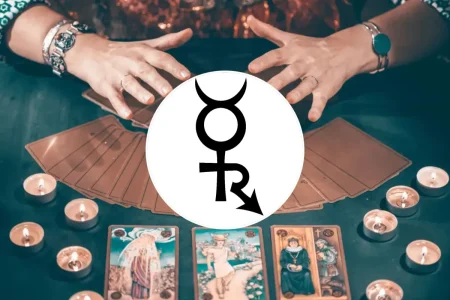Finally Breaking Free from a Toxic Relationship:
The first letter details the painful experience of a woman, "Finally Breaking Free," who has finally ended a two-year relationship characterized by heated arguments, emotional invalidation, and alcohol-fueled accusations. She recognizes the destructive pattern of the relationship, where her partner disregarded her perspective, leaving her feeling blamed and diminished. The alcohol exacerbated the conflict, escalating the arguments despite her attempts to clarify her words. Recognizing the toll this dynamic has taken on her self-worth and emotional well-being, she made the difficult decision to end the relationship. Now, struggling with depression and exhaustion, she grapples with the fear of falling back into old patterns, apologizing and returning to the toxic cycle. She seeks advice on maintaining her resolve and preventing the "fleeting memories of past good times" from clouding her judgment about this and future relationships. Her core struggle lies in breaking free from the emotional pull of the past and rebuilding her sense of self after enduring emotional abuse.
Abby’s response focuses on several key aspects of healing and moving forward. First, she addresses the role of alcohol in exacerbating the communication problems. She advises "Finally Breaking Free" to examine her own drinking habits and consider making changes if alcohol negatively impacts her tone and ability to express herself. This suggestion acknowledges the potential for personal growth and change within the letter writer’s own behavior. Next, Abby tackles the challenge of loneliness, a common hurdle after ending a relationship. She offers practical solutions, suggesting that staying busy with work, friends, volunteering, or new hobbies can help fill the void and prevent the temptation to return to the toxic relationship. These activities provide constructive outlets for energy and promote emotional well-being. Finally, Abby emphasizes the importance of choosing future partners wisely. She advises the writer to ensure that any new romantic relationship involves someone who treats her with respect, a stark contrast to the disrespectful treatment experienced in the previous relationship. This advice highlights the importance of recognizing red flags and prioritizing self-respect in future romantic endeavors.
Navigating a Mother’s Fashion Imitation:
The second letter presents a different kind of relationship challenge. "Twin in the South" writes about her 85-year-old mother’s peculiar habit of copying her clothing choices. Every time the writer compliments her mother’s appearance, the mother inquires about the origin of her outfit. Subsequently, the mother appears wearing the same or similar items. This imitation extends to a black beach coverup, a style that the writer believes is inappropriate for her mother’s age and body type. The daughter expresses her concern and frustration, wondering how to address this behavior without offending her mother.
Abby’s advice is multifaceted. She initially encourages open communication, suggesting that "Twin in the South" express her discomfort to her mother directly. Honest conversation, though potentially difficult, is presented as the first step in resolving the issue. Alongside direct communication, Abby recommends a proactive and collaborative approach. She suggests that the daughter offer to go shopping with her mother and help her find flattering clothing choices. This approach fosters a positive and supportive dynamic while addressing the underlying issue of inappropriate clothing choices. Abby also offers a subtle critique of the mother’s behavior, referencing the expression "mutton dressed as lamb," implying that the mother’s attempts to mimic her daughter’s style are misguided and unlikely to achieve the desired effect of appearing youthful. However, Abby advises against sharing this potentially hurtful observation with the mother directly. Finally, recognizing the potential futility of changing the mother’s behavior, Abby counsels the daughter to "lighten up" and allow her mother to continue her fashion choices, acknowledging that the situation is ultimately harmless. This advice recognizes the importance of choosing battles and prioritizing family harmony.
Analysis of Abby’s Advice and Underlying Themes:
Throughout both letters and responses, several key themes emerge. The first is the importance of self-respect and setting boundaries. In the case of "Finally Breaking Free," this involves recognizing the unacceptable behavior of her partner and choosing to end the relationship. For "Twin in the South," it involves asserting her own preferences and expressing her discomfort with her mother’s imitative behavior. The second theme is communication. Abby consistently encourages open and honest dialogue, even when it may be difficult. She advises "Finally Breaking Free" to address her drinking habits and "Twin in the South" to communicate her concerns to her mother. The third theme is self-care and personal growth. Abby suggests practical strategies for coping with loneliness and rebuilding self-esteem, such as staying busy with positive activities and choosing future partners wisely. Finally, the theme of acceptance and choosing battles is evident in Abby’s advice to "Twin in the South." She acknowledges that some battles are not worth fighting and that accepting certain behaviors, especially those that are ultimately harmless, can contribute to greater peace of mind and stronger relationships.
Abby’s advice emphasizes a balance between asserting oneself and understanding the perspectives of others. She encourages her readers to take responsibility for their own actions and choices while also recognizing the complexities of interpersonal relationships. The advice is practical, offering concrete suggestions for navigating challenging situations. It is also compassionate, acknowledging the emotional toll these challenges can take and encouraging readers to prioritize their well-being. By addressing a wide range of relationship issues, from toxic romantic relationships to family dynamics, Abby’s column provides valuable insights into the intricacies of human connection and the importance of fostering healthy relationships.














